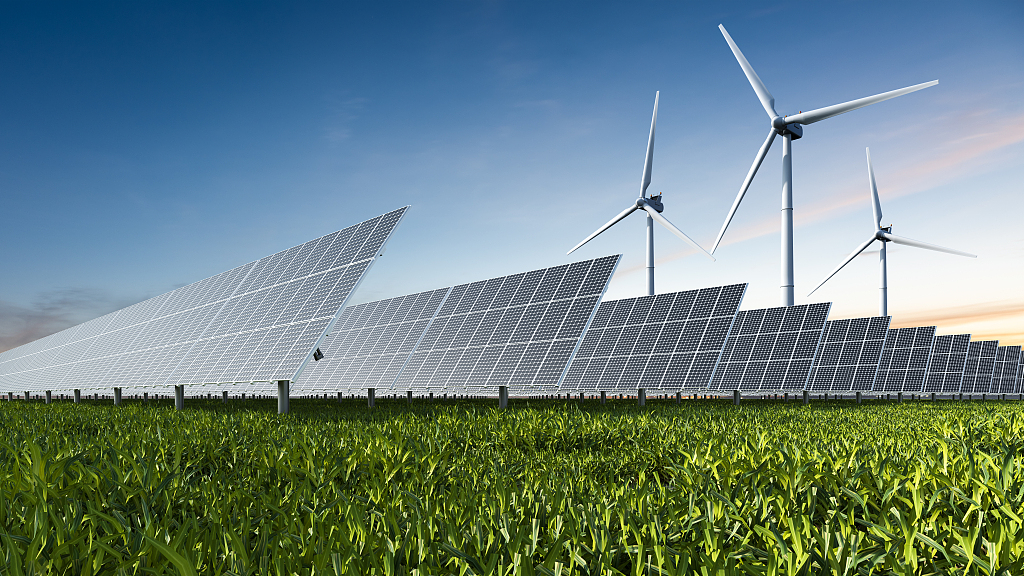Prior to the meeting between the Chinese and the U.S. heads of state in San Francisco, the two countries jointly released "The Sunnylands Statement on Enhancing Cooperation to Address the Climate Crisis" on Wednesday, two years after the last joint statement was issued.
A year after the suspension of China-U.S. talks on climate change, China and the U.S. have agreed to resume the climate conversation. After China Special Envoy for Climate Change Xie Zhenhua met with his U.S. counterpart John Kerry in Beijing from July 16 to 19 and at Sunnylands, California from November 4 to 7, a joint statement was made, reaffirming the commitment to work jointly and together with other countries to address the climate crisis.
The two countries pledged to rapidly scale up renewable energy this decade, reduce methane and other non-carbon dioxide greenhouse gas emissions and strengthen their national climate goals. Also, a working group will be launched aiming to enhance climate cooperation.
"The climate talks and cooperation between the two countries, the two largest emitters in the world, have a crucial and far-reaching impact on the process of global response to climate change," said Li Shuo, incoming director of the China Climate Hub at the Asia Society, adding that the statement sets a foundation for the global climate conference known as COP28.
COP28, scheduled to take place in Dubai from November 30 to December 12, will take stock of the progress on the Paris Agreement and discuss issues including energy transition, financing for adaptation and investments in climate resilience.

Renewable power plants. /CFP
Renewable power plants. /CFP
Methane emissions reduction involved in 2035 NDCs
China and the U.S. agreed that their 2035 Nationally Determined Contributions (NDCs) will be economy-wide and include all greenhouse gases.
The NDCs, where countries set targets for mitigating the greenhouse gas emissions that cause climate change and for adapting to climate impacts, are significant as they show exactly what each country is committing to reach these goals. Both developed and developing countries to the Paris Agreement, a landmark climate treaty reached in 2015, are required to update the NDCs every five years.
The statement highlights one of the sources of global warming, methane, which has more than 80 times the warming power of carbon dioxide over the first 20 years after it reaches the atmosphere. A new report released by the World Meteorological Organization on Wednesday notes that methane levels broke records last year.
China and the U.S. are the world's leading emitters of methane, and their commitments and action are under a worldwide spotlight. Methane emissions account for more than 10 percent of China's total greenhouse emissions.
On November 7, the country unveiled its methane emission control action plan until 2030, vowing a series of specific targets in different sectors.
"All these reflect China's serious attitude and determination to tackle climate change," said Zhang Xiaonan, methane manager of Environmental Defense Fund's China Office.
China and the U.S. have a good foundation for cooperation in methane utilization and have conducted cooperation and exchanges for more than a decade through the Global Methane Initiative, Zhang mentioned.
"The joint statement will encourage the international community to strengthen cooperation and work together to achieve emission reduction goals," she said.
According to the statement, China and the U.S. will immediately initiate technical working group to conduct policy dialogue, technical solutions exchanges and capacity building. Also, the two countries are going to invite other world leaders to attend a Methane and Non-CO2 Greenhouse Gases Summit as part of COP28.
Absolute power sector emission reductions by 2030
As the leading countries in installed renewable energy capacity worldwide, China and the U.S. reaffirmed their commitment to a global tripling of renewable energy capacity this decade, as previously agreed at this year's G20 Summit in India.
The greenhouse gas emissions reduction goals and energy security concerns drive strong deployment of solar PV and wind power. The International Renewable Energy Agency estimates that the growth is set to continue next year with the world's total renewable electricity capacity rising to 4,500 gigawatts (GW), while the number was 3,372 GW in 2022.
The two countries intend to sufficiently accelerate renewable energy deployment in their respective economies through 2030 from 2020 levels so as to accelerate the substitution for coal, oil and gas generation. The result, the statement continued, will be "post-peaking meaningful absolute power sector emission reduction, in this critical decade of the 2020s."
The absolute emissions reduction sends a signal. Li believes such agreement reflects the need to address climate change in this age. "I think China is confident that the peak in power sector emissions will not be too far away," he added.
(If you have specific expertise and want to contribute, or if you have a topic of interest that you'd like to share with us, please email us at nature@cgtn.com.)


